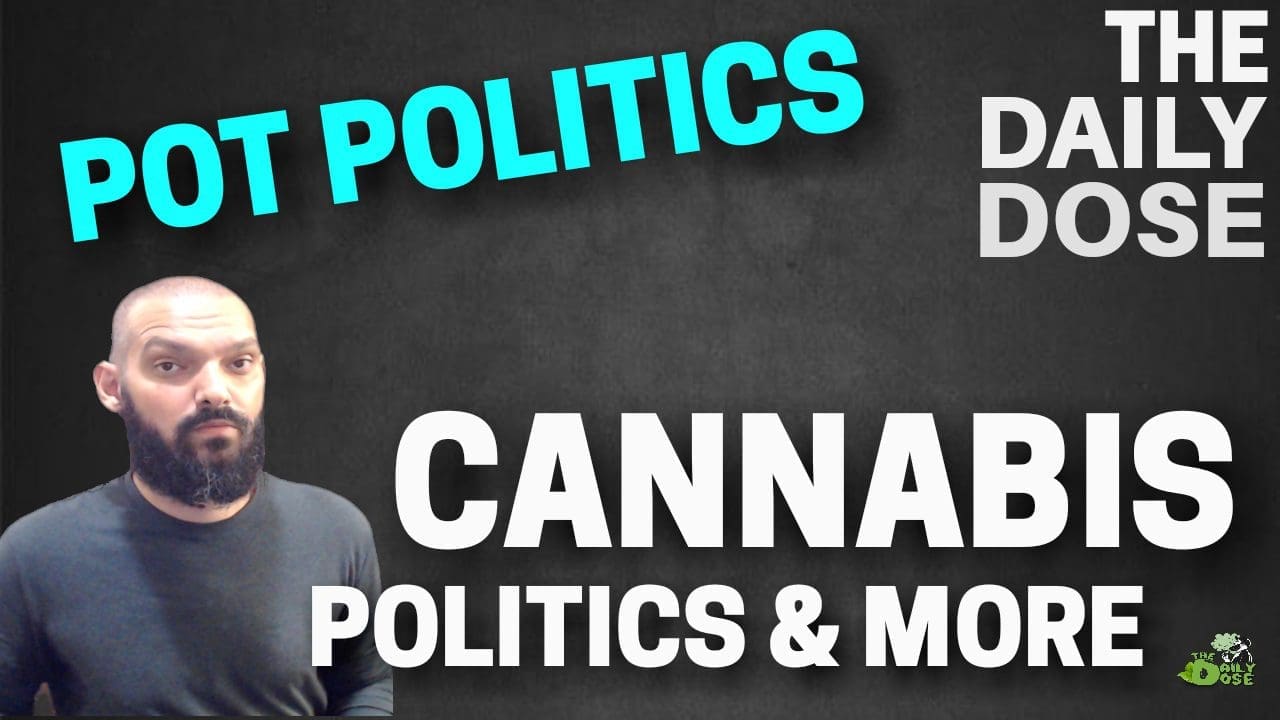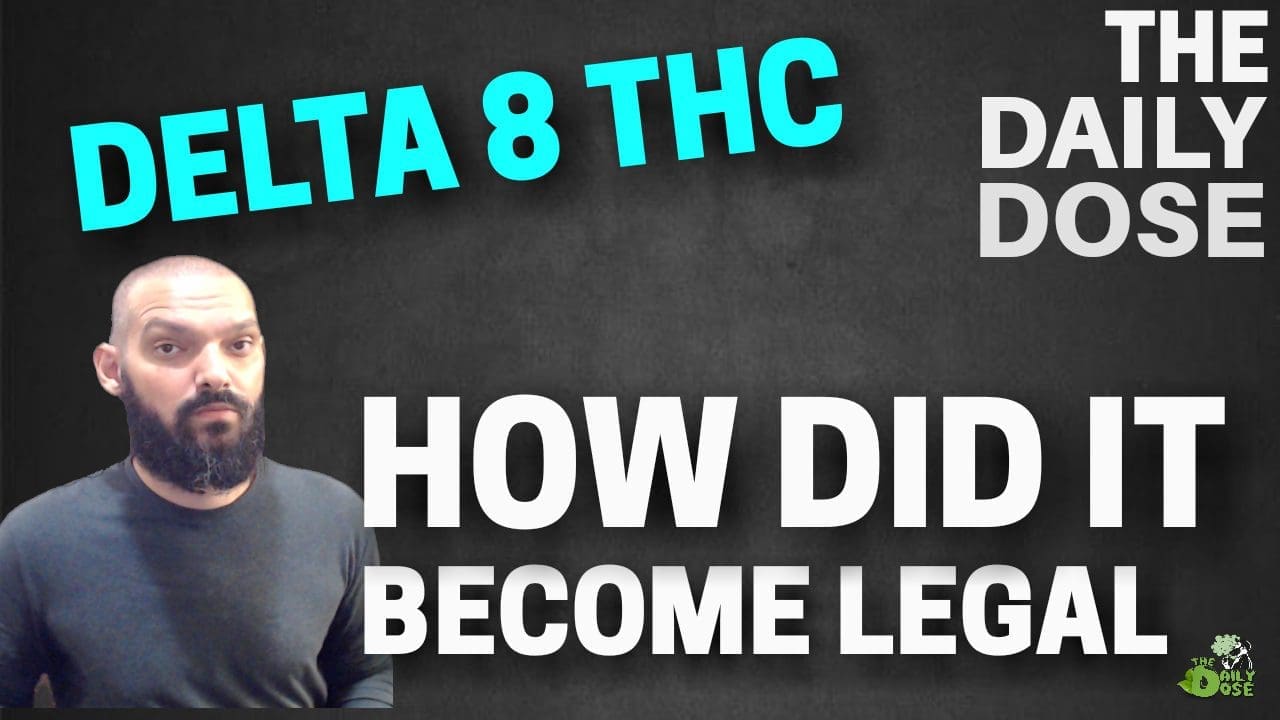Checkout the full audio episode here at The Daily Dose Podcast
Table of contents
Pot Politics How They Effect Us
Today I’ve got Ben Austin on to discuss the various areas of the pot politics here in our country. We have had multiple discussions over the course of a year regarding many issues with the current laws that effect us all.
The Politics Of Cannabis In America
The game of cannabis is rigged, for years we have seen the inequalities from consumption, criminalization down to the very business it is today. Those who have had first hand knowledge of these experiences know full well how difficult it is to get passed the red tape.
Now that cannabis is becoming a legitimized business with permits and legal frame work we see the money grab by the pot politics that governs it. As Ben described, the age of cannabis is all about the extraction of money from a product that is controlled by politics.
Ever wonder why it’s taking so long to legalize cannabis use, it’s taking time because every body within Congress wants to get their hands in it in some manner, every one within Congress wants a clause, or page added on their behalf to the Bill. This is much like any other Bill that is proposed, most Bills don’t pass for similar reasons.

Technology And Regulation
We discussed in great detail the struggles of today’s social platforms that control our content in various ways. Ben has had issues posting content to Facebook in the form of paid ads, while citing the fact he sees many big cannabis brands getting exposure without issues. There guidelines to follow with paid ads on FB but similar guidelines exist for regular posts as well. For example recently over the course of the last year my page has been tagged for posting too much kratom content, all of which were flagged and removed by Facebook and a warning page was issued to me.
The issue is big brands are allowed to pay for the ad space but small businesses get assed out, why this is the case I don’t know. I can only speak on what has happened to me on my own page, far as why Ben’s CBD shop isn’t able to get paid ads published while cannabis brands get away with it no one will ever know.
Technology plays a big role in how we bring content out to the world, it allows us to express ourselves and ideas. The growing concerns over privacy are silly as we should all know big platforms don’t care it’s their business model after all. The idea Ben shared about open sourced technology isn’t new and has been circulating for some time. Bottom line is the money is too much to allow access to everyone, especially when you the product itself.
Democratizing the internet and related technologies should remain a top priority for humanity. If we can’t get a grasp of this soon we may forever be the play things of the technologies we use all the while as the app masters use us.

Conclusion: The Cannabis Industry Ahead
We need more of the public to get involved in the pot politics in all these areas, during the Trump administration we had record numbers of people speaking up and speaking out for all sorts of causes, can we get some . After the dust has settled we now have little engagement in these areas, nobody seems to care whether cannabis is taxed too high, whether kratom is banned or that the black market is thriving due to poorly written legislation around the country. All these I describe are small problems when looking at the big picture, but solving small problems can snow ball into solving big ones.
FAQs
The debate over cannabis legalization involves a complex interplay of legal, social, and economic factors. Firstly, the conflict between federal and state laws in countries like the United States poses a significant challenge. While several states have moved to legalize cannabis either for medical or recreational use, it remains illegal under federal law, leading to a legal gray area that affects banking, taxation, and law enforcement practices.
Secondly, there’s a social justice issue, as past cannabis prohibition laws have disproportionately affected minority communities, raising questions about how legalization can address historical injustices. Furthermore, the regulation of cannabis—ensuring product safety, setting age limits, and determining where and how cannabis can be sold—remains a contentious political issue. Balancing public health concerns with individual freedoms and economic interests is at the heart of the political debate surrounding cannabis.
Public opinion plays a crucial role in shaping the politics of cannabis legalization. As societal attitudes towards cannabis become more favorable, politicians and policymakers are increasingly compelled to reconsider existing laws and regulations. Surveys and polls showing a majority of the public supports legalization can lead to legislative action, as elected officials seek to align with their constituents’ preferences.
Additionally, successful cannabis legalization initiatives in some regions can influence public opinion in others, creating a domino effect that pressures neighboring jurisdictions to follow suit. However, it’s important to note that while public support provides momentum for change, the specifics of cannabis policy—such as regulatory frameworks and taxation—still require careful negotiation among stakeholders.
Regulating cannabis presents several challenges for governments. Ensuring the safety and quality of cannabis products is paramount, necessitating strict regulatory frameworks for cultivation, distribution, and sale. Governments must also determine appropriate taxation levels to generate revenue without encouraging black market sales.
Balancing these economic considerations with public health goals, such as preventing underage use and addressing substance abuse, adds another layer of complexity. Additionally, governments must navigate international drug control treaties that may conflict with domestic legalization efforts. Crafting policies that effectively address these diverse issues requires a nuanced understanding of both the cannabis industry and the social implications of legalization.
The expungement of cannabis convictions is a critical issue within the broader context of cannabis legalization due to the social justice implications. Historically, cannabis prohibition laws have led to the disproportionate incarceration of minority communities, contributing to long-term social and economic disparities. With the legalization of cannabis, addressing these past injustices becomes a priority.
Expunging cannabis convictions can remove barriers to employment, housing, and education for thousands of individuals, offering them a chance to rebuild their lives. Furthermore, it represents a step towards rectifying the harms caused by decades of unequal law enforcement practices, aligning legal systems with evolving societal norms.
International perspectives on cannabis significantly impact domestic cannabis policies, especially in countries that are part of international drug control treaties. These treaties often mandate strict controls on cannabis, complicating efforts to legalize and regulate it domestically. Countries that choose to legalize cannabis may face diplomatic and trade pressures from others that maintain prohibition. However, as more countries explore legalization or decriminalization, international norms are gradually shifting.
This evolving landscape can provide domestic policymakers with models for regulation and arguments for reform, demonstrating that change is feasible and can be aligned with public health and safety objectives. The dialogue among nations about cannabis policy is an important factor in the global trend towards reconsideration and reform of cannabis laws.
Related Articles:
- Pot Politics, Cannabis News, Shrooms, Opioids And Tax
- How To Dose Cannabis Edibles For New Users
- Cannabis Legalization And Substance Use Patterns
- Cannabis Recall California Cannabis Corner
- The Cannabis Opioid Conundrum: Facts Now
Meet The Author





